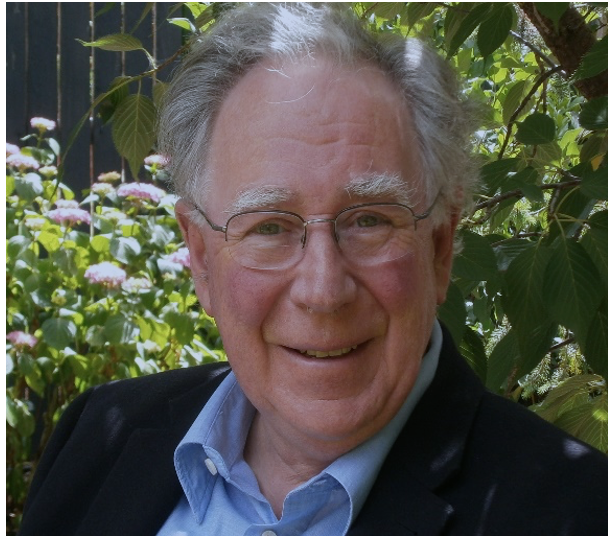Tuvalu: Paradise lost?
November 13, 2023
The recent treaty with Tuvalu opens the way for a more generous treatment of Pacific people.
In an interview on Insiders (12/11/23) Foreign Minister, Penny Wong was absolutely right when she said that the recent treaty between Australia and Tuvalu is the most important Pacific decision our nation has made since the independence of Papua-New Guinea in 1975. The agreement focused on climate change, security and easy access for Tuvaluans to Australia. Of the three elements, our welcome for Tuvaluans is the most important.
This is an argument I made in my 2021 book The Depopulation Imperative. Climate change is already impacting Pacific countries big time and, as a major coal exporter, we have an overwhelming moral responsibility to offer access to Australia specifically for Pacific people. The good thing about the treaty is that entry to Australia is not tied to labour hire or bringing in Pacific people to do the jobs Australians wont. Its rationale is founded on generosity and moral responsibility.
I believe this moral imperative is much greater than any responsibility we have to refugees and immigrants from non-Pacific countries. In fact, what were offering Tuvaluans is not a refugee visa, but a right to study and live here. The Treaty is right when it highlights neighbourliness, care and mutual respect.
Certainly, Ill be in trouble with some for saying this, but I believe we have a far greater moral responsibility to Pacific climate refugees than we do to immigrants from other regions. The numbers of Pacific people in need are manageable, unlike many other countries that have much larger populations. The 2023 population of Tuvalu is 11,396.
While some commentators will focus on the strategic implications as Australia guarantees Tuvalus security and forestalls Chinese intervention, the key issue is that, like New Zealand, we have opened our shores to Pacific people who have to migrate despite their deep ancestral connections to land and sea.
Originally Tuvalu was part of the British crown colony of the Gilbert and Ellice Islands which gained independence in 1976. The other nation to emerge from the British colony was Kiribati. When I visited there in 1975 the population was 55,000. In 2023 it was 133,515 people living on tiny atolls; the highest point on Tarawa, the capital, is just three metres (9.8 feet) above sea level.
In the same Insiders programme, the always insightful Waleed Aly made the point that a Tuvalu-style treaty with a nation like Kiribati would be a much bigger deal because of a larger population and the I-Kiribatis deep attachment to their islands.
Geographically Kiribati is strategically important. It straddles the Equator in the middle of the Pacific Ocean and the Chinese are already making their presence felt there. A key issue is that current Kiribati president, Taneti Maamau, in contrast to his predecessor, Anote Tong, has rejected the idea that climate change will eventually make the islands uninhabitable and has turned to China in an ambitious plan to lift the level of the islands to maintain them as habitable.
This chimes in with the views of the majority of Christian I-Kiribati who believe that God will save our beautiful lands. Very few are making plans to leave and, while apprehensive, they see global warming as a long-term problem, despite being told by Western science that abandoning the islands is their only option.
In response to promises of Chinese aid in raising the islands, the Maamau government has given the Chinese access to the rich fishing region in the 3.5 million square kilometre Phoenix Islands Protected Area, a declared UNESCO World Heritage site. The fear is that the area could be fished out.
In February this year Penny Wong visited the Kiribati capital Tarawa and Australias 2023-2024 aid budget to the Republic totalled $43.4 million. Previously, relations had been strained by Kiribatis withdrawal (it later returned) from the Pacific Islands Forum and the sacking of Australian and New Zealand high court judges. Wongs visit resulted in a Memorandum of Understanding which has somewhat healed the breech between Kiribati and Australia and we are giving them a second Guardian Class patrol boat to help with maritime surveillance.
However, Prime Minister Maamau was understandably cautious in his response to the treaty with Tuvalu. Nevertheless, weve got a moral obligation to maintain the offer of re-settlement in Australia not only for the I-Kiribati, but for our other Pacific neighbours. In 2023-2024 migration programme weve allotted 190,000 permanent places for immigrants who are certainly not our next-door-neighbours. Pacific people should take priority over all others. Love of neighbour means sharing our home with them.
Like it or lump it, the world of three-four decades from now will be a very different place and re-enforcement of the atolls will be sustainable only for a few decades. The I-Kiribati will eventually have to face this dire reality.

